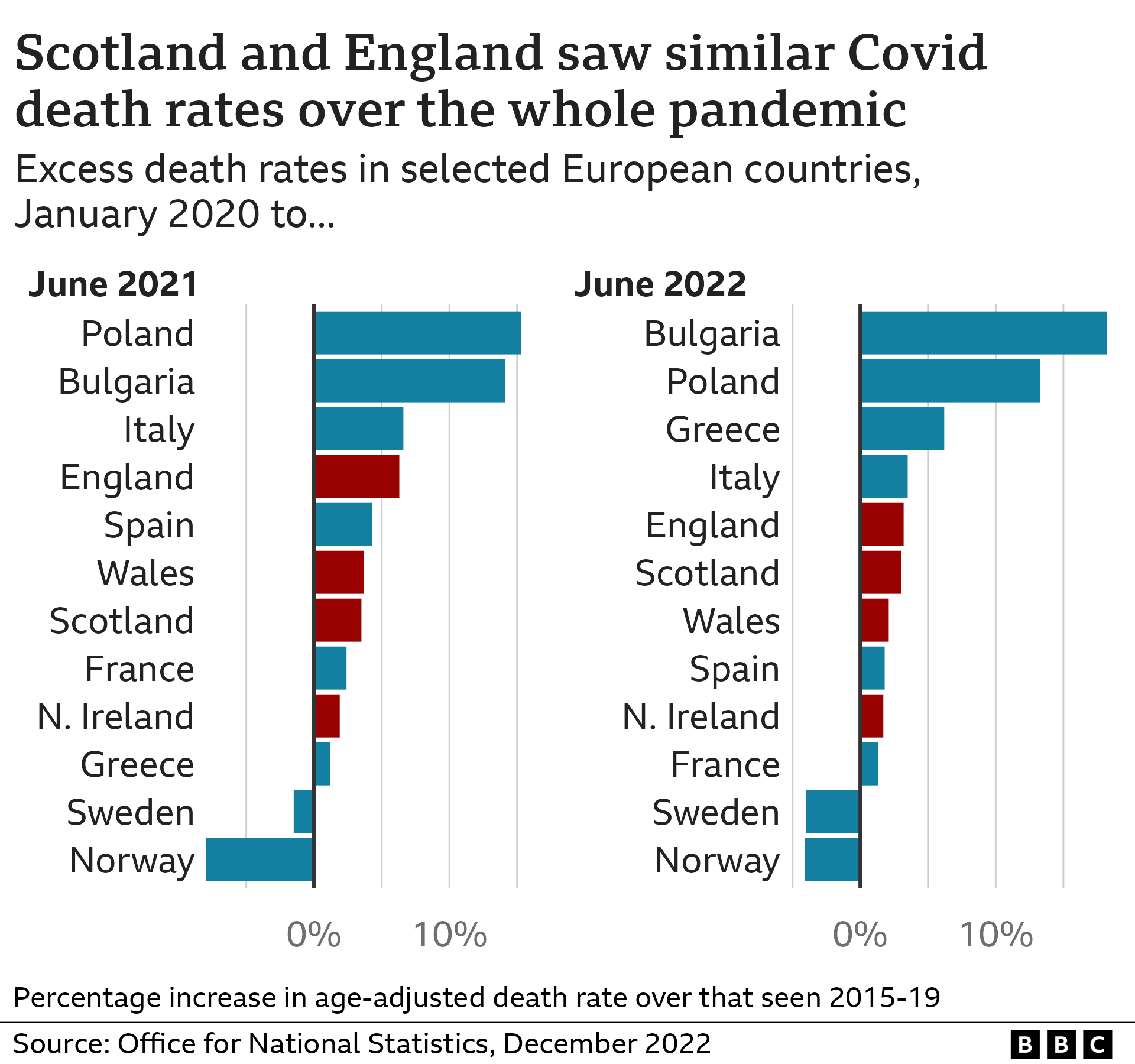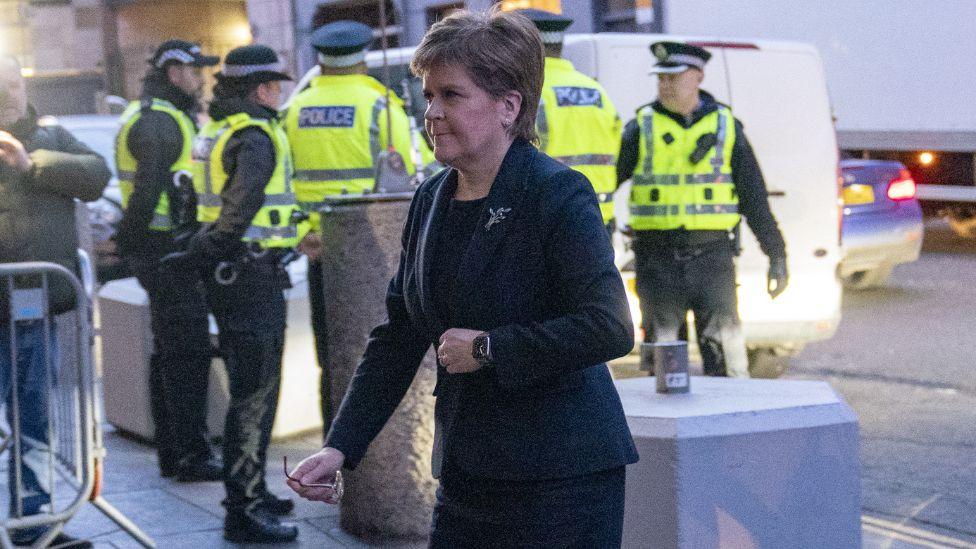Nicola Sturgeon deleted WhatsApps but denies secrecy
- Published
Inquiry lawyer Jamie Dawson asks Nicola Sturgeon if she deleted WhatsApp messages between her and her ministers and advisors.
Nicola Sturgeon denied presiding over a culture of secrecy despite telling the UK Covid Inquiry she deleted her WhatsApps during the pandemic.
The former first minister said she could not have kept secrets from the public even if she wanted to.
She said decisions were not made via informal messages and that they were deleted in line with government policy.
She also apologised if she was not "clear" in her previous answers about providing material to the inquiry.
She told Channel 4 News in August 2021 that she would provide all relevant communications to the Scottish Covid Inquiry, which is being held separately from the UK-wide inquiry.
The UK inquiry, which is currently sitting in Edinburgh, has previously been told by Jamie Dawson KC that Ms Sturgeon appeared to have retained no informal messages whatsoever in connection with her management of the pandemic.
It has been shown exchanges of messages between senior Scottish government officials, in which they were reminded that the conversations would be subject to Freedom of Information laws and were urged to delete the messages.
Opposition parties and survivors groups have accused the government of an "industrial-scale" deletion policy in an attempt to avoid scrutiny.
However, some Scottish government figures - including Ms Sturgeon's former chief of staff Liz Lloyd and current First Minister Humza Yousaf - have submitted text conversations with Ms Sturgeon to the inquiry.

Giving evidence to the inquiry on Wednesday morning, Ms Sturgeon - who stepped down as first minister and SNP leader in March of last year - said she exchanged WhatsApps with no more than a "handful" of people, and was not a member of any groups.
She said her use of the app was "extremely limited" and did not relate to "substantive" government business.
Ms Sturgeon, who became tearful at points during her evidence, said she deleted these informal messages, in line with official advice, and "salient" points were all recorded on the corporate record.
She denied that deleting informal messages meant the Scottish or UK inquiries would be deprived of relevant material about how decisions were made during the pandemic.
She added: "There would be nothing in those communications that was not available to either the inquiry or the public, through the record of the Scottish government, or indeed in the very detailed public statements that were being made every day.
The former first minister said she had been trying to answer the "substance" of the Channel 4 question, but said the "literal terms" of her answer may not have matched the question, which referred to the then first minister handing over "emails, WhatsApps, private emails... whatever".
"I accept that, and I apologise if that answer was not as clear," Ms Sturgeon said.

Former first minister gave evidence to the UK Covid Inquiry in Edinburgh
She also said that "openness and transparency" were a priority for her throughout the pandemic but that there would inevitably be cases where the government could have been more transparent.
Ms Sturgeon added: "I would like to give an assurance to the inquiry that contrary to any desire on the part of me, or my government, to keep things secret, I would suggest the opposite was the case during the pandemic."
In her written evidence, she said decisions were "informed, shaped and taken mainly" through "deep-dive" sessions and so-called "gold command" meetings - attended by Ms Sturgeon, a small group of advisers and a revolving group of ministers - and cabinet meetings.
On Tuesday, former Deputy First Minister John Swinney told the inquiry that the decision to close schools in March 2020 was made during a conversation between him and Ms Sturgeon, rather than in a discussion involving the full cabinet.
He said this was because "events were moving at an absolutely ferocious pace".
Ms Sturgeon denied that the power of the cabinet had been "usurped" and relegated to a "ratifying" body under her leadership.
She told the inquiry: "I was not given carte blanche to take any decision I wanted to take.
"Cabinet would say to me, we want to do this - assuming the data supports it, and I would look at that and make that final decision."
The inquiry had also heard that minutes were not kept for the Scottish government's equivalent of Cobra meetings - the Scottish Government Resilience Room - or for so-called "gold command" meetings.
Former Finance Secretary Kate Forbes said she was not invited to the meetings in 2020 and had not even known they existed.
It has also emerged that, on Mr Yousaf's first day in the job after being appointed as Scotland's health secretary in May 2021, national clinical director Jason Leitch sent him a WhatsApp message which read: "She actually wants none of us."
Scotland's Information Commissioner David Hamilton later said the absence of minutes at some government meetings was "absolutely unacceptable" and "can't happen again", and that it was almost certain his office would take action.
Ms Sturgeon said there should have been a "clearer record" of what she called "discursive, non-decision-making" meetings.
She denied Ms Forbes, who she described as an "extremely highly valued" member of the government, was excluded from meetings she should have been a part of.